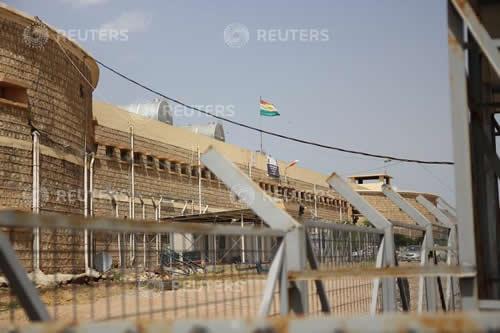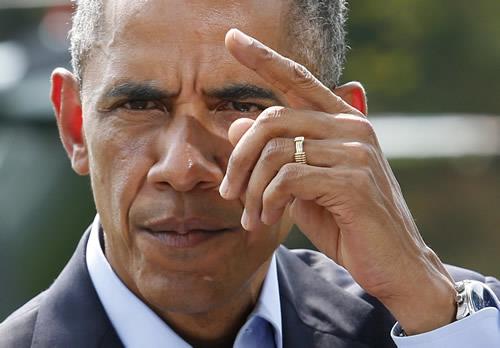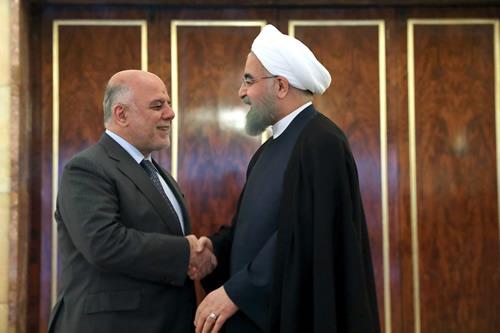By Tony Duheaume
Al Arabiya-, 3 September 2017 – Since the fall of Saddam Hussein, death squads have taken root in Iraq’s political core, and with the strengthening of Shiite militias by the Iranian regime, they have been used as a tool to inflict fear, to ensure that Iraq’s autocratic political body remains under Shiite control.
When Nouri Maliki’s Dawa Party came to power in Iraq in 2005 he had originally been appointed as vice-president for de-Baathification of the former Iraqi government and its military personnel. By April 2006, Maliki was installed as prime minister and with both the Americans and the Iranians looking on him as a politician they could easily influence, both were happy to back him during those early days.
As Maliki’s grip strengthened, his agenda for a Shiite dominated Iraq firmly took root, and it soon became apparent that the only future for Iraq under his divisive rule, came in the form of an Iranian satellite state. As he grew in stature, the Iranian regime’s plans for hegemonic control of Iraq began to take hold, and with the use of their subservient puppet in Baghdad; Shiite militias under their control began to wreak havoc across the country in the form of death squads.
Maliki’s marginalization of Sunnis had been an integral part of his premiership while hitting back at so-called al-Qaeda terror groups that had been causing havoc in Iraq before the advent of ISIS, some of which had been attributed to “false flag” operations from other quarters. Maliki cracked down on any form of dissent in Sunni communities, where voices had been raised against his sectarian policies.
With many Shiite militia members serving in both the armed forces and the police force, Maliki used them to do his personal bidding and running in line with a continuing violent program of de-Baathification. He used torture and extrajudicial execution to eradicate any sign of Saddam Hussein’s Baathist regime from the country, as well as marginalize Sunnis from political office.

A general view of the Akre refugee camp, a former prison, in Iraq May 17, 2016.
Network of secret prisons
During his term in office, Maliki consolidated his power base and effectively took political control of the judiciary. He used a network of secret prisons, controlled by the interior ministry and used by the Special Police Commanders as places of confinement. Sunni kidnap victims would be taken there to be interrogated, using the vilest forms of torture known.
The first sign of death squads operating in Iraq became fully apparent in May 2005, when dozens of bodies began to turn up around Baghdad. But the irony of this whole situation, came about when it was exposed in the US press, of how during 2005, the Pentagon was so desperate to get on top of the rising Sunni insurgency.
It trained groups of Iraqi Shiite militias to carry out “irregular missions” on behalf of US forces, in what was dubbed as the “Salvador option”. The Salvador option was named after counter-insurgency techniques used in Latin America during the 1980s.
These techniques were carried out by American-trained death squads and were used to terrorize the population of El Salvador into submission, and to hunt down and kill rebel leaders and sympathizers, who opposed the US-backed despotic right-wing government.

U.S. President Barack Obama gestures as he speaks to the media on the situation in Iraq on the South Lawn of the White House, before his departure for vacation in Martha’s Vineyard, in Washington, on August 9, 2014.
Obama policies
It was due to President Barack Obama’s Middle East policy of taking a back seat that Iran managed to gain a foothold in Iraq, which looks highly unlikely to diminish.
It was when Iraq needed US boots on the ground to fight ISIS, none was forthcoming, and so the Iraqi authorities turned to Iran for help, and since that time, through the IRGC’s Quds Force, the Iranian regime has been able to entrench itself firmly in Iraq, making great strides politically, militarily and economically to cement its position.
After serving a second term as prime minister, Maliki has ensured that the Federal Supreme Court in Iraq overturned a vote which prohibited a prime minister from running for a third term and was once again able to run for office himself.
Then in April 2014, his “State of Law” coalition won an unexpected majority of seats in the Iraqi parliamentary election, and with Fuad Masoum, a Kurd, chosen to serve as Iraq’s new president, Maliki was expecting to be appointed the prime minister.
But since his last tenure, his political allies had taken a step back from him, as accusations were thrown accusing him of stoking sectarian division, rampant corruption, and failing to stem the threat of ISIS, as it swept across northern Iraq.

Iranian Regime’s President Hassan Rouhani with Iraqi Prime Minister Haidar al-Abadi in Tehran on June 20, 2017.
With Haider al-Abadi named new premier in September 2014, he came in on a program of reforming Iraq’s bureaucracy and promising to push through concessions to Sunni tribes, which would give their leaders more political power, which Abadi hoped would ease sectarian division.
But even under his tenure, with death squads in the form of militias still out there, his promises of healing divisions have proven to be just empty words.
Even with ISIS virtually eradicated in Iraq, violence against Sunni citizens continues, which has been seen markedly during the cleaning up process.
Now that Iranian-backed militias have been integrated into the Iraqi armed forces, the army is effectively under the control of Tehran.
With the present climate the way it is, it makes no difference what Shiite prime minister sits at the head of the government, the militias won’t be reined in as long as Iran has a strong influence in the country.
Tony Duheaume









